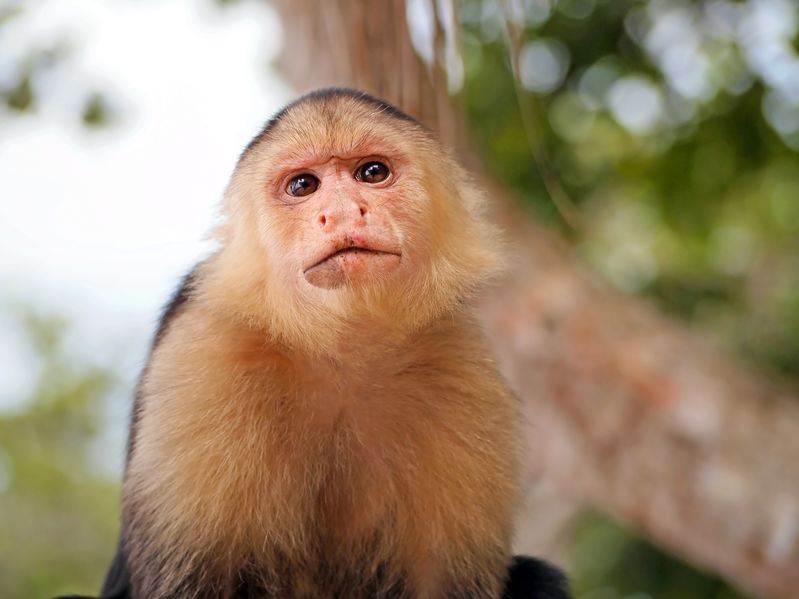By Sean Zucker –
Monkeys have always represented a point of scientific curiosity. With their human resemblance and heightened intelligence, these mammals have long represented a genetic nexus. Hell, even Ross from Friends appreciated their grace. And maybe he was on to something, as his buddy Marcel was a capuchin monkey–widely recognized as the most intelligent New World monkey.
The breed has always captivated researchers for its incredibly large brain and extensive lifespan. In fact, when compared to other primates, only capuchin monkeys match humans for longest lifespan as predicted for their brain and body sizes. Finally, there may be some clues as to why capuchins are so like humans.
A team of international scientists led by the University of Calgary in Canada with help from researchers at the University of Liverpool, sequenced the genome of a capuchin monkey. Their findings, originally published in Proceedings of the National Academy of Sciences of the United States of America (PNAS), revealed undiscovered genetic clues to their long lifespan and large brains.
“Capuchins have the largest relative brain size of any monkey and can live past the age of 50, despite their small size, but their genetic underpinnings had remained unexplored until now,” explained Professor Joao Pedro De Magalhaes, an expert on ageing at the University of Liverpool.
The researcher team developed its findings by following a comparative genomics approach spanning a wide array of diverse mammals and identified genes under evolutionary selection associated with longevity and brain development.
“We found signatures of positive selection on genes underlying both traits, which helps us to better understand how such traits evolve. In addition, we found evidence of genetic adaptation to drought and seasonal environments by looking at populations of capuchins from a rainforest and a seasonal dry forest,” added Research Chair Amanda Melin, an authority on capuchin monkey behavior and genetics.
The team also identified genes associated with DNA damage response, metabolism, cell cycle, and insulin signaling. This helped link into previous work by de Magalhaes, which has shown the DNA to be a major contributor to ageing. Other studies have found that genes involved in DNA damage responses exhibit longevity-specific selection patterns in mammals.
“Of course, because aging-related genes often play multiple roles it is impossible to be sure whether selection in these genes is related to ageing or to other life-history traits, like growth rates and developmental times, that in turn correlate with longevity,” De Magalhaes continued.
The research team was quick to note that its work and discoveries were made possible through a new technique that isolates DNA more efficiently from primate fecal. Called FecalFACS, the method utilizes an existing process that separates different cell types in body fluids and applies it to primate fecal samples.
“This is a major breakthrough because the typical way to extract DNA from feces results in about 95-99 percent of the DNA coming from gut microbes and food items…FecalFACS finally provides a way to sequence whole genomes from free-ranging mammals using readily available, non-invasive samples, which could really help future conservation efforts,” added Dr Joseph Orkin of the University of Calgary.
Think about it. Monkey poop may be the key that unlocks insights to capuchins’ engorged brains, long lives and deep connection to their homo sapiens cousins.













